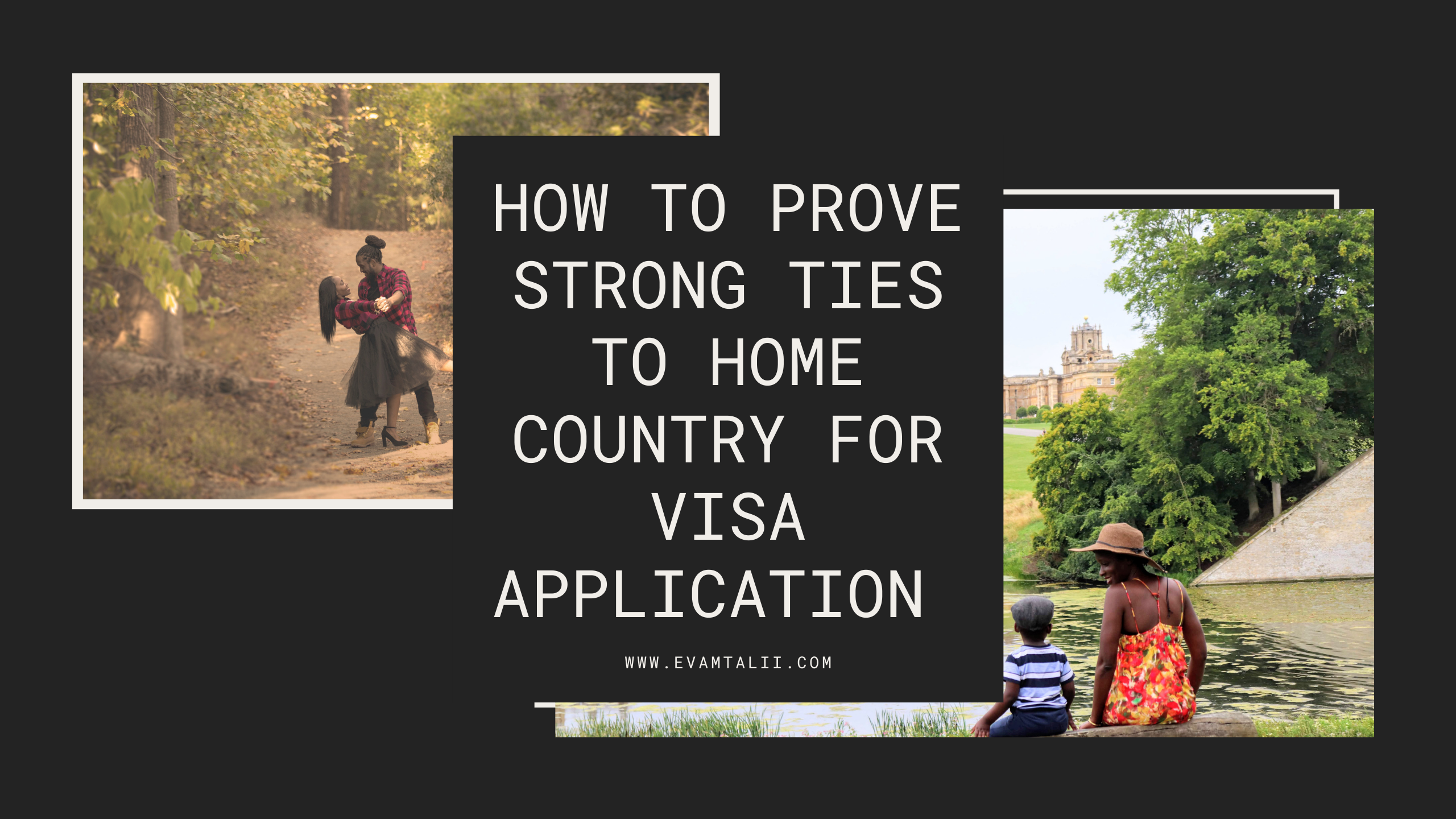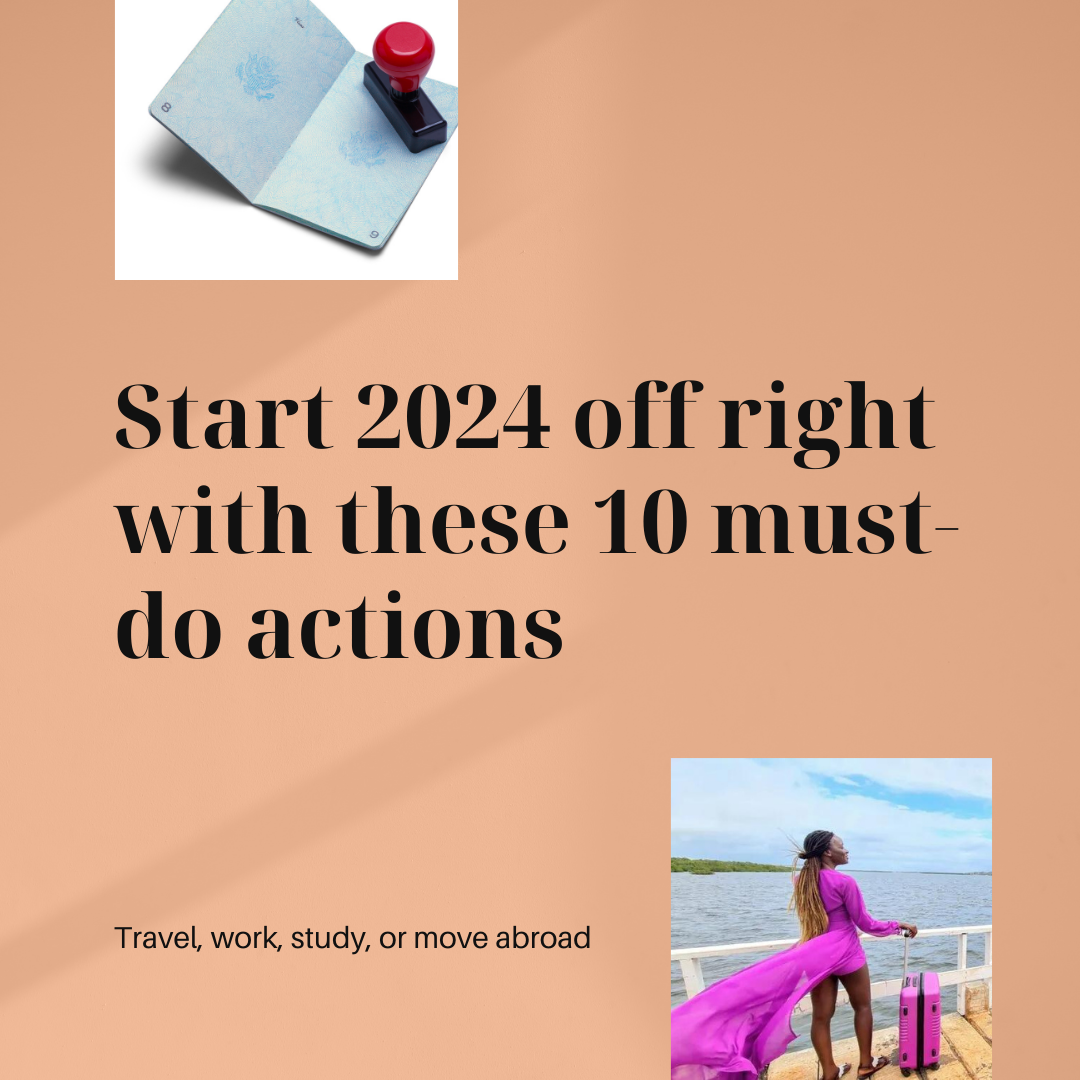
One of the most common reasons applicants are denied visas is for failure to “provide evidence of any strong economic, family and/or social ties to their home country.”
Evidence of deep-rootedness aka strong family and social ties to your home country, is one of the most critical requirements when applying for a US visa, UK visa, Canadian visa, Australian visa, Brazil visa, or Schengen visa in Kenya.
So how do you prove that you are firmly established in Kenya, your home country?
Watch video below to find out more:
Read on to learn how:
What's Covered in This Article
Include a detailed visa application cover letter
A Visa Cover Letter is the letter, which you write to the embassy where you will be submitting your visa application documents. Whether it be for your UK visa, Schengen visa, Australian visa, Brazil visa or Canada visa application in Kenya.
I know the temptation to skimp on this is very real, but for your own sake, please take your time to write it well. Yes the consulars accept the letters, and do read them.
My personal recommendation is that you always include a compelling cover letter for every visa application even for those embassies that do not include it on the list of required documents!
Besides, in this day and age when most embassies have outsourced the visa document collection services to VFS services, you have no opportunity to speak to, and/or explain yourself to the embassy officer that will/is going to process your visa application.
Thus, the visa processing officers’ decision making is pegged to the information you provide. Make their work easy!
Furthermore, most visa application forms are very standardized and may not exactly be customized to your particular situation.
I remember for instance when I was applying for a 1 year multiple-entry Schengen visa via the Embassy of France in Kenya.
My intended travel dates were between July 11th and 20th, and then again between September 9th and 14th. But the Schengen visa application form has only one slot for a singular block to enter your intended travel days.
Putting only one block of dates may have resulted in getting a visa for that period only, and then needing to go back to the embassy to request for a visa for the ensuing dates.
Not efficient at all!
Anyway, I squeezed in my request on the side of the form and then was also fortunate to speak to the visa officer and my request was granted.
On the other hand, there are embassies such as Brazil embassy in Kenya, where a visa cover letter is not an option but a mandatory requirement.
In such cases, you have no option but to write one.

Having said that, below are some of the areas you would want to include in your visa application cover letter:
- Proposed travel dates.
- The purpose of your travel to the destination country.
- How you will create time to visit destination country. For example:
- Mention you have been granted annual leave by your employer
- If not working, explain why, e.g. you’re on a sabbatical
- Proof of how you will fund your trip (self-supported or sponsored)
- If sponsored– explain how you are related with your sponsor and the reason why they are sponsoring your trip
- Reasons why you want to visit the destination country.
- An general overview of your travel itinerary.
- If cover letter is for Schengen visa, give reasons why you chose to apply at that specific Embassy. For example:
- I will be staying here the longest for the duration of my trip (make sure your round-trip ticket and confirmed accommodation match these claims)
- This country will be my first point of entry and has the most reasonable flight fares
- If you are unable to submit any of the required documents, explain why you cannot submit them and mention any other alternative documents that you may be submitting instead.
- That you intend to return to Kenya and any evidence of having done so in the past.
- That you do not intend to work illegally in the destination country
- That you do not intend to violate the destination country laws,
- That you do not intend to deplete the destination country’s resources.
Click here for a sample Brazil tourist visa cover letter I presented for my Brazil visa application in Kenya.
Show enough evidence for your personal and economic circumstances
Here, you basically need to prove to the visa officer that you are capable of traveling to and from their country. And that you have enough resources to fund your stay in that country and for when you return to Kenya.
You can prove this through a 6-month Bank Statement, Bank Certificate, building society book, etc. which show that you have sufficient funds in your bank account.
Here are 7 Practical Tips On How To Show Money for Visa Application in Kenya.
Make sure to read this too!
Attach documents to prove ownership of assets

These include documents such as copies of land title deeds, vehicle log books, apartment shareholding certificates, stock certificates, etc.
Asset ownership is evidence of your ‘financial capability’ otherwise how else were you able to acquire these assets?
#tagyoursponsor
Submit proof of steady source of income
This is one of the most important evidences of your strong economic ties or deep rootedness to your home country Kenya.
A steady source of income is believed to one of those things that will give you a reason to return to Kenya at the end of your trip.
With this, you’re simply telling the visa officer “why would I want to be an illegal immigrant when I have this stable job or steady income to come back to!”
Documents you can submit in support of steady source of income for your visa application in Kenya will vary depending on your source of income. For example, monthly salary, business income, rental income, etc. You can include: certified bank statements (3+ months) and/or pay slips for the last three months.
A steady source of income is very important.
This will make them think that you don’t need to find a job abroad since you’re earning enough in your home country.
These documents could vary depending on your source of income:
- If employed- You can submit proof of earnings such as a letter from your employer on company letterhead, confirming employment details (start date of employment, salary, role, length of employment, and company contact details)
- If you own a business- Attach your business registration certificate and KRA Tax Return certificate/acknowledgement
- For Digital Nomads/Freelancers without a business registration certificate – If you are paid for your freelance work via Payoneer debit card, M-Pesa, or Paypal, submit these account statements. You can also include screenshots of the freelancing websites that you work on (e.g. Upwork account), to back up the online statements.
Show documents proving family relationships

With strong “social ties” I mean that you have other non-economic reasons that lower your motivation to work illegally or overstay your welcome in the destination country.
If you’re married, you can submit a marriage certificate.
If you’re a parent, you can submit your child(ren)’s birth certificate(s).
If none of this situations apply to you, then I guess itabidi ujipange.
You’re stuck to the economic ties. Make sure they’re strong enough.
Be practical

I always tell people that one of the easiest way to get your visa approved is to have a visa and as many stamps as possible.
Can you imagine the amount of convincing you will need to do to, lets say, a US, UK, Schengen visa officer processing a visa to tour their country and yet you have never even gone beyond your county or Kenya?
I am not saying it is impossible to get a visa on a blank passport or if you have never gone beyond Raywer village (that’s my hood!).
All I am saying is that it’s much better and much easier if you first travel locally and then to nearby countries especially those that are visa-free or grant visa-on arrival for Kenya passport holder.
You can check here for a list of those countries Kenyans can visit visa free, get visa on arrival, or with a US tourist visa.
Besides, first traveling locally and regionally gives you the travel experience and confidence you will need once you start hitting those international borders.
My friend, it’s a harsh world out there globetrotting on a ‘powerless’ Kenyan passport.
Furthermore, for some countries such as Canada, UK, Australia, etc, when applying for visa, they ask you to include copies of visa stamps for any countries you have traveled to in the past 10 years.
Conclusion
If you’ve read this far and are either nodding in agreement or doubling back on your plan to apply for a visa in Kenya, you know yourself.
Laid out above are many great tips on how to prove deep – rootedness and/or social, economic and family ties for your visa application as a Kenyan national; and increase your chances of having your visa approved.
However.
And this is a huge however.
NO ONE can guarantee that your visa will be approved or that the visa will grant you entry into the territory. That being said, what I have offered you in this post is a comprehensive guide with helpful tips to increase your chances of getting that tourist visa.
While I undertook the necessary due diligence in researching and writing this post, please visit the respective embassy’s website for more information, including any changes that may have occurred to the visa application or approval process after this post was written.
With these 6 tips to prove rootedness to your home country you’re now ready to submit that visa application, right? Right!
Are you on Pinterest? Pin for Later!




